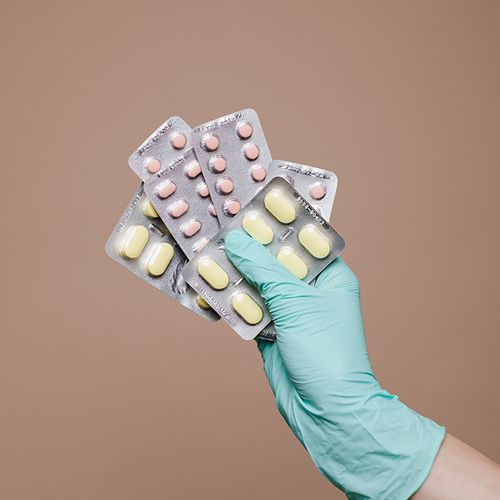Most doctors warn their patients about the potential dangers of combining medications, but few take the time—and some are not well-informed enough—to offer guidance on the harmful effects of taking certain vitamins and/or herbs with prescription drugs.
New study: Among 132 pharmacists surveyed, 47% had seen a patient with a suspected side effect from a vitamin-drug or herb-drug interaction, according to research published in an issue of The Annals of Pharmacotherapy.
Hidden danger: The problem is particularly common among Americans over age 65, who comprise 14% of the US population but take 40% of all drugs, vitamins and herbs.
Older people also are more sensitive to the side effects of vitamin-drug or herb-drug interactions due to changes in metabolism and the brain.
Harmful Interactions
When some vitamins and/or herbs are taken with certain drugs, the supplement can…
- Weaken the effectiveness of the drug
Example: The herb astragalus, which is used to boost immunity, may reduce the immunosuppressive effects of such drugs as cortisone Cortone).
- Strengthen the effectiveness of the drug, causing a type of drug overdose.
Example: Black cohosh, an herb used to control the symptoms of menopause, can lower blood pressure
If taken with an antihypertensive medication, it can cause hypotension (severely low blood pressure) with symptoms such as dizziness and fatigue.
Vitamin-Drug Interactions
Vitamins that are among the most likely to cause dangerous interactions with drugs…*
- Vitamin A promotes immunity, proper bone growth and healthy skin. It also plays a role in night vision and the growth and maintenance of cells of the gastrointestinal tract.
Recommended Dietary Allowance (RDA): 2,300 international units (IU) for women...3.000 IU for men.
Supplemental vitamin A may interact with drugs including: The anticoagulant warfarin-vitamin A can increase the risk for bleeding and bruising.
- Vitamin B-6 is involved in digestion, the production of red blood cells and the maintenance of a healthy brain and nervous system.
RDA: 1.3 milligram (mg) for all adults ages 19 to 50...15 mg for women over age 50...1.7 mg for men over age 50.
Supplemental vitamin B-6 may interact with drugs including: Amiodarone (Cordarone), taken for heart arrhythmias—B-6 may increase skin sensitivity to sunlight...carbidopa and levodopa (Sinemet), taken for Parkinson's disease-B-6 may interfere with the medication's effectiveness...theophylline (Elixophyllin), taken for asthma—B-6 may increase the risk for seizures induced by theophylline.
- Vitamin C is important for immunity and helps the body manufacture and repair blood vessels, skin, muscles, teeth, bones, tendons, ligaments, hormones and neurotransmitters.
RDA: 75 mg for women...90 mg for men
Supplemental vitamin C may interact with drugs including: The bloodthinners beparin (Hepalean) or warfarin (Coumadin), taken for cardiovascular disease-vitamin C may reduce the effectiveness of these drugs.
- Calcium helps build strong bones and assists in wound healing, blood clotting, cellular metabolism and muscle contraction.
Adequate intake (AI): 1,000 mg for adults ages 19 to 50...1,200 mg for adults over age 50.
Supplemental calcium may interact with drugs including: Digitalis drugs, such as digoxin (Lanoxin), which improve the heart's strength and efficiency-calcium can decrease digitalis levels... aminoglycoside antibiotics, especially gentamicin (Aloomicin-calcium can increase the risk for kidney failure.
*Multivitamins or individual supplements containing nutrients that exceed the RDA may cause interactions.
Herb-Drug Interactions
Herbs that are among the most likely to cause dangerous interactions with drugs…
- Valerian, a mild sedative, is used to treat insomnia and anxiety.
Lowest effective dose: 400 mg, up to two hours before bedtime.
Valerian may interact with drugs including: A selective serotonin reuptake inhibitor (SSRI), such as sertraline (Zoloft), or tricyclic antidepressant, such as desipramine (Norpramin-valerian can cause excessive sedation, depression and mental impairment.
- Grapeseed extract is rich in powerful antioxidants called procyanidolic oligomers (PCOS). It is used to treat high blood pressure, heart disease, varicose veins and macular degeneration.
Lowest effective dose: 5.4 mg daily.
Grapeseed extract may interact with drugs including: A blood-thinning medication, such as aspirin or warfarin—grapeseed extract can increase the risk for bleeding and bruising.
- Yohimbe is an African herb that improves blood flow. It is sometimes prescribed for men who have erectile dysfunction.
Lowest effective dose: 5.4 mg daily.
Yohimbe may interact with drugs including: The allergy medication phenylephrine, found in over-the-counter products, such as Vicks Sinex Nasal Spray, or in prescription drugs, such as promethazine hydrochloride (Phenergan)...or the asthma medication albuterol (Proventil)—yohimbe can cause a potentially dangerous increase in heart rate and blood pressure.
- Apple cider vinegar is a popular folk remedy that has been used to treat arthritis, high blood pressure and leg cramps
Lowest effective dose: One tablespoon daily.
Apple cider vinegar may interact with drugs including: Medication for congestive heart failure and/or high blood pressure, such as digoxin furosemide (Lasix) and hydrochlorothiazide (Microzide)-apple cider vinegar can increase the risk for hypokalemia (low potassium levels), which can further complicate heart disease.
- Evening primrose oil delivers high levels of gamma-linolenic acid (GLA), an essential fatty acid. It is used to treat premenstrual syndrome, hot flashes, high blood pressure (during pregnancy) and rheumatoid arthritis.
Lowest effective dose: 540 mg daily.
Evening primrose oil may interact with drugs including: Anti-seizure medications, such as clonazepam (Klonopin)—evening primrose oil can lower the effectiveness of such drugs, making a seizure more likely.
How To Stay Safe
You can take vitamins and/or herbs safely if you use them with the supervision of your primary care physician. Talk to your doctor first.
Helpful: Take a bottle of the supplement to your next appointment so your doctor determine whether it is likely to cause adverse interactions with any of your medications. Or call your doctor and read the supplement's ingredient list to him/her. Also, check the Web site of the National Institutes of Health's Office of Dietary Supplements, www.ods.od.nih.gov, for information about vitamins and herbs that interact with prescription medications.
Safest approach: The lower the dose of the vitamin and/or herb, the less likely it is to interact with a drug.
